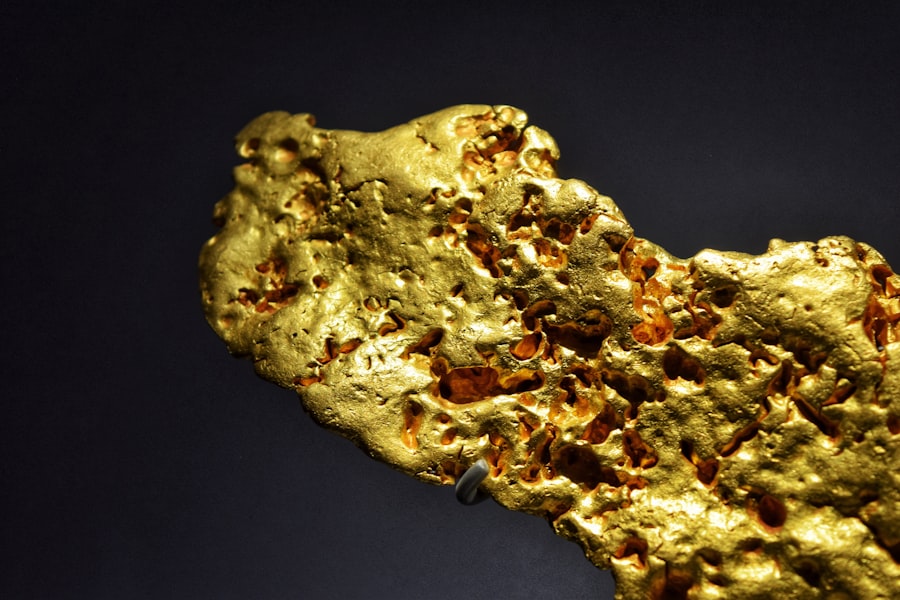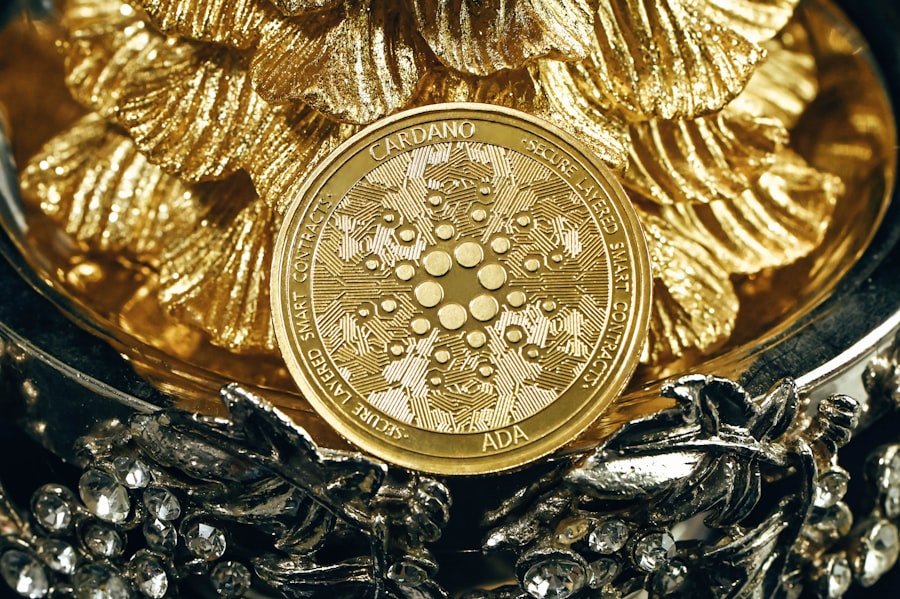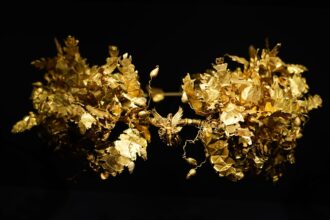Gold has long been a symbol of wealth and power, and its historical significance in Africa cannot be overstated. From ancient civilizations to modern states, gold has played a pivotal role in shaping the continent’s history. The earliest records of gold mining in Africa date back to the ancient Egyptians, who revered gold not only for its beauty but also for its association with the divine.
The discovery of gold in regions such as Nubia and the Mali Empire led to the establishment of trade routes that connected Africa to Europe and Asia, facilitating cultural exchanges and economic growth. The legendary wealth of figures like Mansa Musa, who famously distributed gold during his pilgrimage to Mecca, highlights the profound impact of gold on African societies. As time progressed, the allure of African gold attracted explorers and traders from around the world.
The trans-Saharan trade routes became bustling arteries of commerce, where gold was exchanged for salt, textiles, and other valuable goods. This exchange not only enriched local economies but also fostered a sense of interconnectedness among diverse cultures. The historical significance of African gold is thus intertwined with the continent’s identity, serving as a testament to its rich heritage and the ingenuity of its people.
Key Takeaways
- African gold has played a crucial role in shaping historical trade routes and wealth distribution across continents.
- The extraction and trade of African gold significantly influenced colonial expansion and economic exploitation.
- Gold holds deep cultural and symbolic value in many African societies, beyond its economic importance.
- Gold mining in Africa presents both environmental challenges and social impacts that require sustainable solutions.
- Ethical mining practices and future economic strategies are essential for maximizing benefits and minimizing harm in Africa’s gold industry.
The Role of African Gold in Global Economics
In the contemporary global economy, African gold continues to hold a crucial position. As one of the world’s largest producers of gold, countries such as South Africa, Ghana, and Mali contribute significantly to the global supply. The demand for gold remains robust, driven by various industries including jewelry, electronics, and finance.
This demand has positioned African nations as key players in the international market, influencing global prices and trade dynamics. The economic contributions of gold mining extend beyond mere exports; they also create jobs, stimulate local economies, and generate tax revenues that can be reinvested in public services. However, the role of African gold in global economics is not without its complexities.
Fluctuations in gold prices can have profound effects on national economies, particularly for those heavily reliant on mining revenues. For instance, during periods of high demand, countries may experience economic booms, but these can quickly turn into crises when prices fall. Additionally, the global nature of gold trading often means that profits do not always benefit local communities.
As such, while African gold plays a vital role in global economics, it also raises questions about equity and sustainability within the industry.
The Impact of African Gold on Colonialism

The history of colonialism in Africa is deeply intertwined with the continent’s rich mineral resources, particularly gold. European powers were drawn to Africa not only for its land but also for its wealth in natural resources. The quest for gold fueled exploration and conquest, leading to the establishment of colonial regimes that exploited both the land and its people.
In regions like South Africa and West Africa, colonial powers implemented systems that prioritized extraction over local development, often leading to significant social and economic disruptions. The impact of African gold on colonialism was profound and multifaceted. It facilitated the transfer of wealth from Africa to Europe, contributing to the industrialization of European nations while leaving many African communities impoverished.
The legacy of this exploitation is still felt today, as many former colonies grapple with the consequences of resource extraction that prioritized foreign interests over local needs. The historical relationship between African gold and colonialism serves as a reminder of the complexities surrounding resource management and the ongoing struggle for economic sovereignty.
The Cultural and Symbolic Importance of African Gold
| Aspect | Description | Significance | Example |
|---|---|---|---|
| Historical Value | Gold as a symbol of wealth and power in ancient African kingdoms | Established trade routes and influenced global economies | Kingdom of Mali’s gold trade in the 14th century |
| Spiritual Symbolism | Gold used in religious artifacts and rituals | Represents divine connection and spiritual purity | Gold masks and jewelry in Ashanti culture |
| Artistic Expression | Gold incorporated into sculptures, jewelry, and regalia | Showcases craftsmanship and cultural identity | Benin Bronzes with gold inlays |
| Social Status | Gold as a marker of social hierarchy and leadership | Used to denote royalty and elite status | Gold crowns and ornaments worn by Yoruba kings |
| Economic Impact | Gold mining and trade as a source of wealth | Supported local economies and international trade | Gold trade routes across West Africa |
Beyond its economic value, gold holds immense cultural and symbolic significance in many African societies. Throughout history, gold has been associated with power, status, and spirituality. In various cultures, it is used in traditional ceremonies, rituals, and as a medium for artistic expression.
For instance, the intricate gold jewelry crafted by artisans in West Africa reflects not only aesthetic beauty but also cultural identity and heritage. Gold is often seen as a bridge between the material and spiritual worlds, symbolizing prosperity and divine favor. Moreover, the cultural importance of gold extends to its role in social structures.
In many communities, gold is used as a form of currency in social transactions such as marriages or rites of passage. This practice underscores the deep-rooted connection between wealth and social relationships in African cultures. As such, gold is not merely a commodity; it embodies values, traditions, and histories that are integral to the identity of various communities across the continent.
The Environmental and Social Impacts of Gold Mining in Africa
While gold mining has the potential to drive economic growth, it also poses significant environmental and social challenges. The extraction process often leads to deforestation, soil degradation, and water pollution, which can have devastating effects on local ecosystems. In regions where mining activities are prevalent, communities may face health risks due to exposure to toxic substances used in the extraction process.
These environmental impacts can undermine agricultural productivity and threaten food security for local populations. Socially, the consequences of gold mining can be equally troubling. In many cases, mining operations displace communities and disrupt traditional ways of life.
Furthermore, labor conditions in some mining operations can be exploitative, with workers facing unsafe environments and inadequate compensation. Addressing these environmental and social impacts is crucial for ensuring that gold mining contributes positively to sustainable development in Africa.
The Influence of African Gold on International Trade

African gold has long been a cornerstone of international trade networks. Its desirability has made it a sought-after commodity across continents, influencing trade relations between Africa and other regions. Historically, gold was used as a medium of exchange in trade agreements between African kingdoms and foreign traders.
Today, it continues to play a vital role in shaping trade dynamics on a global scale. The influence of African gold on international trade extends beyond mere transactions; it also affects geopolitical relationships. Countries that are rich in gold resources often find themselves at the center of international negotiations and partnerships.
As nations seek to secure access to these valuable resources, they may engage in diplomatic efforts or even strategic alliances. This interplay between resource wealth and international relations underscores the importance of African gold in shaping not only economic landscapes but also political alliances on a global scale.
The Role of African Gold in Shaping Modern African Economies
In contemporary Africa, gold remains a key driver of economic development for many nations. As one of the continent’s most valuable resources, it contributes significantly to GDP growth and foreign exchange earnings. Countries like Ghana have leveraged their gold reserves to attract foreign investment and stimulate economic activity.
The mining sector creates jobs not only directly within mines but also indirectly through related industries such as transportation and services. However, the reliance on gold as an economic pillar also presents challenges for modern African economies. Fluctuations in global gold prices can lead to economic instability for countries dependent on mining revenues.
Additionally, there is often a need for diversification within these economies to reduce vulnerability to external shocks. As such, while African gold plays a crucial role in shaping modern economies, it also necessitates strategic planning to ensure sustainable growth that benefits all segments of society.
The Political Power Dynamics of African Gold
The political landscape in many African countries is heavily influenced by the presence of gold resources. Control over these resources often translates into power dynamics that can shape governance structures and political stability. In some cases, political elites may exploit their positions to benefit from mining revenues while neglecting broader societal needs.
This concentration of power can lead to corruption and governance challenges that hinder development efforts. Moreover, conflicts over resource control have been a recurring theme in many African nations. Disputes between governments, mining companies, and local communities can escalate into violence or civil unrest.
The political power dynamics surrounding African gold highlight the need for transparent governance frameworks that prioritize equitable resource management. Ensuring that local communities benefit from mining activities is essential for fostering social cohesion and political stability.
The Future of African Gold in the Global Economy
As global demand for gold continues to evolve, the future of African gold in the international economy remains uncertain yet promising. With increasing interest in sustainable investment practices and ethical sourcing, there is potential for African nations to position themselves as leaders in responsible gold production. By adopting environmentally friendly practices and ensuring fair labor conditions, countries can enhance their reputation on the global stage while attracting conscientious investors.
Additionally, advancements in technology may play a significant role in shaping the future of gold mining in Africa. Innovations such as automated mining processes and improved extraction techniques could increase efficiency while minimizing environmental impacts. As the world moves towards a more sustainable future, African nations have an opportunity to redefine their relationship with gold—transforming it from a source of exploitation into a catalyst for positive change.
The Challenges and Opportunities of Gold Mining in Africa
The landscape of gold mining in Africa is marked by both challenges and opportunities that require careful navigation. On one hand, issues such as regulatory hurdles, inadequate infrastructure, and environmental concerns pose significant obstacles for mining companies operating on the continent. These challenges can deter investment and hinder growth within the sector.
On the other hand, there are numerous opportunities for innovation and collaboration within the industry. By fostering partnerships between governments, private companies, and local communities, stakeholders can work towards creating a more sustainable mining environment that benefits all parties involved. Emphasizing responsible practices not only enhances community relations but also positions African nations favorably within global markets increasingly focused on sustainability.
The Ethical and Sustainable Practices in African Gold Mining
In recent years, there has been a growing emphasis on ethical and sustainable practices within the African gold mining sector. Stakeholders are increasingly recognizing the importance of balancing economic interests with social responsibility and environmental stewardship. Initiatives aimed at promoting fair labor practices, community engagement, and environmental conservation are gaining traction across various regions.
Implementing ethical practices requires collaboration among governments, mining companies, non-governmental organizations (NGOs), and local communities. By establishing clear guidelines for responsible mining operations—such as minimizing environmental impacts and ensuring fair compensation for workers—stakeholders can work towards creating a more equitable industry that respects both people and planet. As awareness around ethical sourcing continues to rise globally, African nations have an opportunity to lead by example in promoting sustainable practices within their gold mining sectors.
In conclusion, African gold holds immense historical significance while playing a crucial role in global economics today. Its impact on colonialism has shaped political landscapes across the continent while contributing to cultural identities rooted deeply within societies. However, challenges related to environmental sustainability and social equity persist within this industry—calling for concerted efforts towards ethical practices that prioritize both people’s well-being alongside economic growth opportunities moving forward into an uncertain future ahead.
The dynamics of African gold and its influence on global power structures are intricately explored in a related article. For a deeper understanding of how gold resources in Africa are shaping international relations and economic strategies, you can read more in this insightful piece on In The War Room.
WATCH THIS! The Secret War for Africa’s Gold: How Private Armies Fund Global Conflict
FAQs
What is the significance of African gold in global history?
African gold has played a crucial role in global history by driving trade, wealth accumulation, and the rise of powerful empires such as the Ghana, Mali, and Songhai empires. It was a key commodity in trans-Saharan trade routes and attracted European interest during the Age of Exploration.
How has African gold influenced global power dynamics?
African gold has influenced global power dynamics by contributing to the wealth and economic strength of various empires and nations. Control over gold resources often translated into political power, enabling states to finance armies, expand territories, and engage in international trade.
Which African regions are historically known for gold production?
Historically, West African regions such as present-day Ghana, Mali, and Burkina Faso have been renowned for their rich gold deposits. The area known as the Gold Coast (modern Ghana) was especially famous for its abundant gold resources.
How did European colonization impact African gold mining?
European colonization intensified the extraction of African gold, often exploiting local labor and resources. Colonizers established mining operations to supply European markets, which altered traditional mining practices and had significant social and economic impacts on African societies.
What role does African gold play in the modern global economy?
Today, African gold remains a significant contributor to the global gold supply, with countries like South Africa, Ghana, and Mali being major producers. Gold mining continues to impact local economies and global markets, influencing trade balances and investment flows.
Are there environmental concerns related to gold mining in Africa?
Yes, gold mining in Africa has raised environmental concerns including deforestation, water pollution, and soil degradation. Both artisanal and industrial mining activities can lead to habitat destruction and health risks for local communities.
How does gold mining affect local communities in Africa?
Gold mining can provide employment and economic opportunities but also poses challenges such as displacement, labor exploitation, and social conflicts. The benefits and drawbacks vary depending on governance, mining practices, and community engagement.
What measures are being taken to ensure responsible gold mining in Africa?
Efforts to promote responsible gold mining include implementing environmental regulations, encouraging fair labor practices, and supporting certification schemes like the Responsible Jewellery Council. International organizations and governments work to improve transparency and sustainability in the sector.



